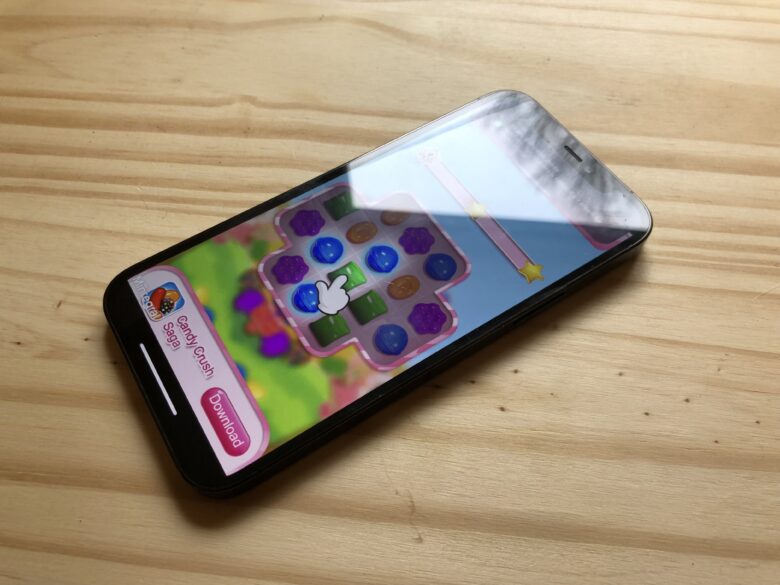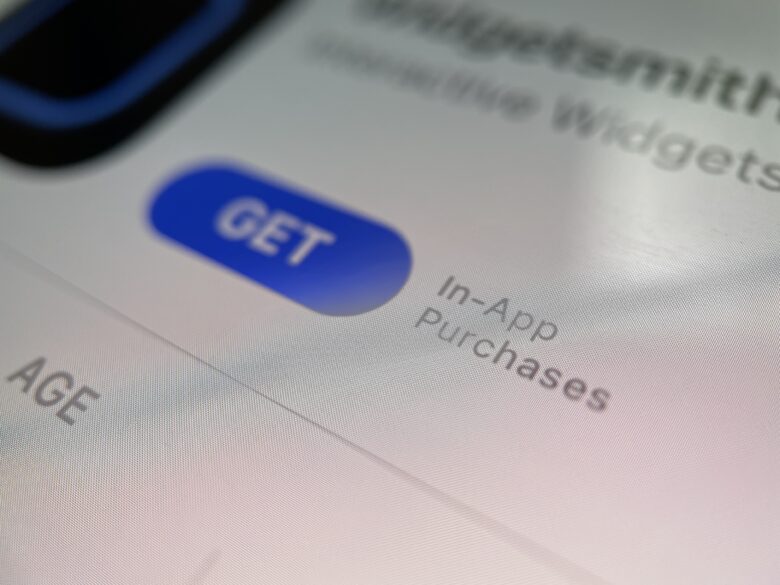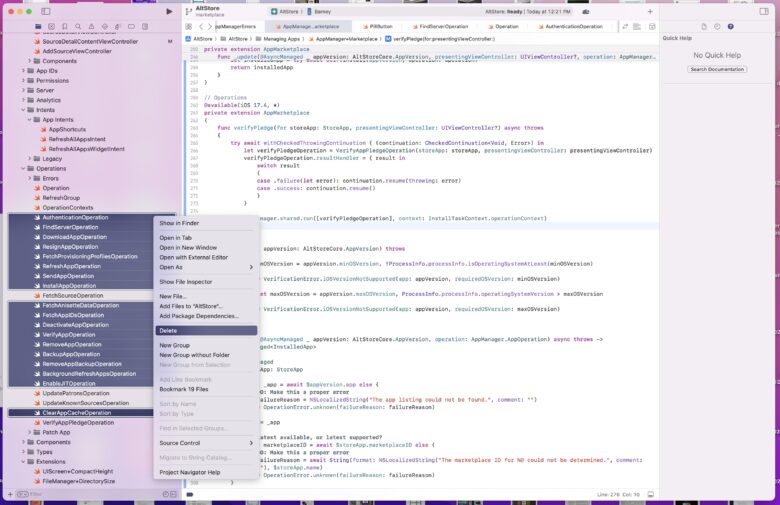iOS developer Riley Testut, the brains behind AltStore (the original alternative App Store), has a great take on Apple’s plans to open up the App Store in the European Union
This is “everything I’ve been wanting for the past few years,” he said after Apple laid out its plans last week. “Even reading the announcement I was tearing up.”
Testut, who lives in Texas, has a vested interest in Apple loosening its grip on the App Store to comply with the EU’s Digital Markets Act. He’s the co-creator of AltStore, a hacky skunkworks project that enables sideloading of iPhone and iPad apps. Now he’s working to transition AltStore into an officially sanctioned app marketplace that complies with Apple’s new rules.
In an exclusive interview with Cult of Mac, Testut talks about the hidden upside for iPhone owners around the world; the downsides of Apple’s strict new framework and fees; and the joys of making AltStore one of the first legit third-party app marketplaces in the EU.
Testut’s take on Apple’s plans for opening up iOS is perhaps the best to date, and well worth a read.
You can also watch the full interview on YouTube.
Riley Testut on AltStore and the EU’s alternative app marketplaces
When the EU App Store changes take effect with the release of iOS 17.4 in March, the App Store that people know and love won’t change, Testut said. But the new rules will make new types of apps possible.
The biggest change EU iPhone owners will see is “apps start to come out that just didn’t exist before,” Testut said. Apple prohibits software emulators, game-streaming apps, pornography and apps that serve mini-games and from its App Store. But under the new rules, Apple won’t vet for content, no matter what an app contains. (Apple will only screen apps for bugs and security vulnerabilities.)
And, although the changes are only for the European Union, they could have a trickle-out effect on the rest of the world.
“If there’s a cool app that exists only in the EU, other countries around the world will be like, ‘Wait, we want that app,’” Testut said.
The App Store isn’t going anywhere
What about the apps you use today? Even though companies like Meta, Epic Games and Microsoft could technically set up their own marketplaces with fewer privacy restrictions and additional user tracking, where you would have to go to download apps like Facebook, Instagram, Fortnite and Xbox Game Pass, Testut doesn’t think this doom scenario is likely.
Testut said he thinks the “vast majority of app of developers will choose to keep their apps just in the App Store.”
First of all, an app marketplace can’t be used to exclusively vend apps from one company. All app marketplaces must accept submissions from all developers. App marketplaces can be themed, though, like a hypothetical Steam Store or Setapp Store.
More importantly, Testut doesn’t think users would accept that. “There’s not much appeal for a consumer to have to jump through hoops to basically get an app they already could get,” he said. “Because then they’re just like, ‘Why is this not in the App Store?’”
Why should I care? I live in the United States!

Photo: WhiteHouse.gov
At first, it’ll be frustrating seeing these innovative new apps come out for only the European market — which isn’t even Apple’s strongest market. As we always say in the United States, what about me? Why should I care about what’s happening in the rest of the world?
Testut said he thinks the United States will adopt similar legislation “sooner rather than later — within the next year or two.” And with the feature launching exclusively in the European Union at first, kinks will be ironed out by the time the system rolls out elsewhere.
Previous efforts to pass similar legislation in the United States failed. But next time around, Congress can look to an example of how alternative app stores can work — and what concessions Apple might make.
App marketplaces aren’t entirely a free-for-all — and that’s a good thing

Photo: D. Griffin Jones/Cult of Mac
Apple continues to say that third-party app distribution poses a risk to iPhone owners, and put in place certain mechanisms to keep things as safe as possible while complying with EU mandates.
For instance, even though iPhone owners in Europe will no longer be restricted to downloading apps from the App Store, they won’t be able to install an app directly from a website or from an advertisement. They’ll first need to download an app marketplace, then install the app from there.
Testut agrees this is a good speed bump — those irritating full-screen game ads can’t put an app on your phone if you tap the wrong button accidentally.
Apple also must “notarize all the apps and check for security stuff and make sure there’s nothing awful in these apps,” Testut said, regardless of whether they will appear in the App Store or anywhere else. So EU iPhone owners will have a security blanket no matter what.
This flips the freemium business model — ‘you could literally go bankrupt if you become successful.’

Photo: D. Griffin Jones/Cult of Mac
Perhaps the most onerous part of Apple’s new plan is the new fees the company plans to implement. These drew the most fire from developers. (Epic Games CEO Tim Sweeney, no fan of Apple, called Cupertino’s new framework “malicious compliance.” And some observers think the EU will reject Apple’s plan, at least in part.)
The current rules of the App Store “allow you to distribute a free app, well, for free,” Testut points out. Apple only charges developers for in-app purchases after the fact. This has fostered an economy of apps that are free to download with an in-app purchase to unlock all the features, typically through a subscription.
If a developer opts into Apple’s new rules, which they must do to list their apps on any other marketplace, this whole business model is reversed. “You get reduced commissions in the App Store,” Testut said, from 30% down to 20%, but there’s a catch. After the millionth customer, the developer must pay half a euro every time someone downloads their app — even if it’s free.
“If you’re just making a free app and you’re not making money from it, it’s kind of rough that you could literally go bankrupt if you become successful,” Testut said.
Reactions to this new charge, which Apple calls the Core Technology Fee, have been almost universally negative.
“That’s something I wish could be changed,” Testut said. “Or maybe more nuanced — remove that fee for the small business program developers. To me, I think that’s a reasonable thing.”
No love for iPad, another ‘really dumb mistake’

Even Testut at first didn’t realize that these changes will only affect the iPhone, not the iPad, within the European Union. He called it “a really dumb mistake” on Apple’s part.
“The iPad could benefit so much more from sideloading and alternative app marketplaces than the iPhone,” he said, and not just for playing retro games on a bigger screen (as awesome as that would be). An iPad with sideloading could become a power tool for developers.
“We could have terminals,” Testut said. “We could have programming environments. We could have any developer tool that can exist. And I hope they can change that.”
Apple’s weak defense (that the EU apparently fell for) is that there are five different App Stores in total — one each for iPhones, iPads, Macs, Apple TVs and Apple Watches. And the App Store on iPad can’t be classified as a monopoly.
Making AltStore official: ‘We are getting creative and we’re making it work.’

Screenshot: Riley Testut
What will it take to make AltStore an official app marketplace by the time Apple releases iOS 17.4 this March? Testut is focused on “gutting the entire AltStore code base” to make it work around Apple’s new developer tools. Apple set up more than 600 APIs that he needs to research and build AltStore with.
On the business end of things, Testut has help from his best friend and business partner, Shane Gill. They need to create “a legal entity in the EU,” and get a “million-dollar line of credit” from a bank to prove they’re a legitimate business, Testut said. If that sounds like an unreasonably high bar to impose, Testut assured me it’s standard practice.
“It’s a normal thing for businesses to prove, and so I’m not worried about that,” he said.
Testut says longtime AltStore users have been asking how he’s going to switch to Apple’s new business model. After all, AltStore used to be a completely free tool. While he wouldn’t give away specifics, he offered more words of reassurance.
“I promise y’all we know we’ve made the numbers work out,” he said. “We will make it work. We are getting creative and we’re making it work.”
You can follow AltStore on Mastodon, Threads and X; follow Riley Testut on Mastodon and Threads.


